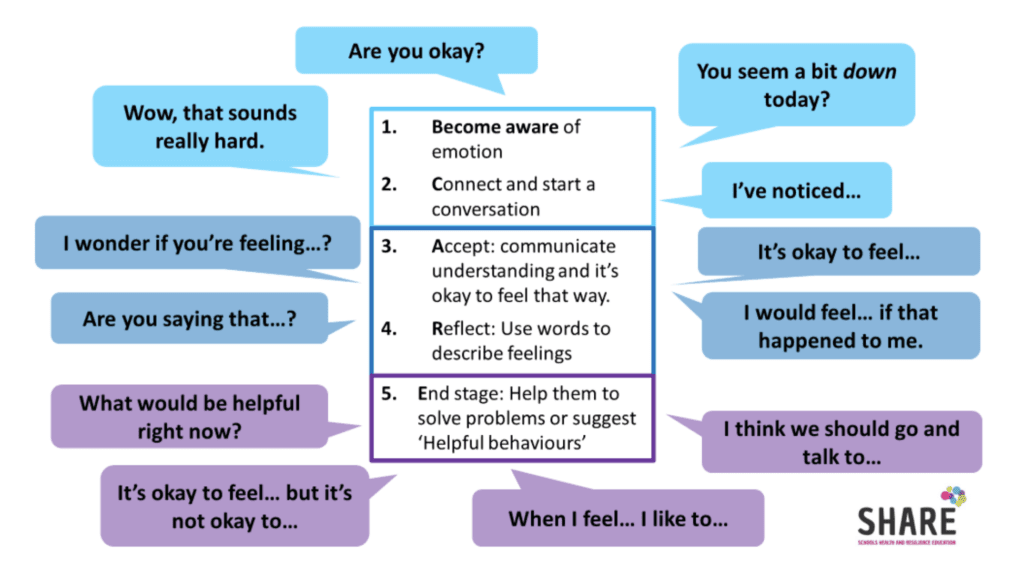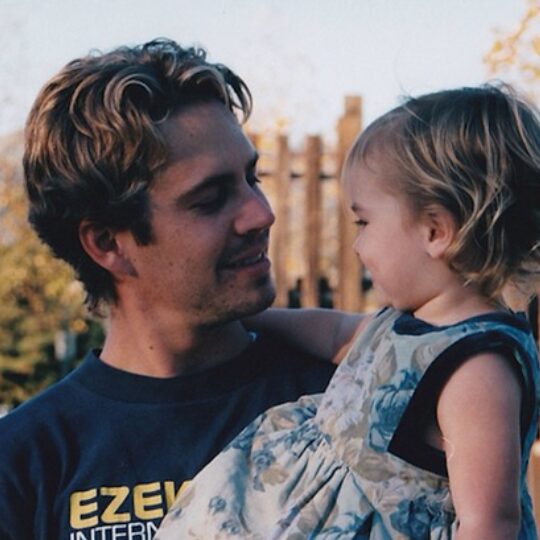Shaun McInerney tells us how to cultivate empathy in our children and why it matters
‘Don’t mess with that cupboard; its got poison in it; and poison is so dangerous, people can die if they drink it. What would Mummy and Daddy do without their little boy?’
The 3 year old boy looked at his Daddy and said, calmly, ‘but Daddy, you could just get another little boy.’
This conversation stays with me. It marks the beginning of my curiosity about our childrens’ empathy and it’s led me on a journey filled with so many questions:
Are we born with the ability to read and respond to each others’ feelings? If not, when does this develop? Does it happen naturally or does it need to be taught? Why might this be important? How empathetic am I? How might understanding empathy help me support my two children, now 7 and 9, to grow up well and happy?
What is Empathy?
Empathy, commonly confused with sympathy, is not feeling sorry for someone; it is feeling with someone and to do this we have to:
1) understand what they are feeling – this needs an emotional vocabulary;
2) feel with them – learn to put our own stuff on hold and step into their space; and
3) we need to act on those feelings to help and support them.
Quite a challenge. Particularly if, like most men, you are hard-wired to rush straight into problem solving mode to ‘right’ the situation!
Why Is Empathy So Important?
My dad was the last to plough a field with a horse in the early 1960s. His grandchildren are living within an online multiverse of connection, information and interaction. They have the same brain organ but need to develop it in different ways to be successful. The world has changed so dramatically in recent decades and empathy is now the skill we need to function well within it.
I was brought up in a large extended Irish family in Birmingham in the 1970s. My father was one of 19 children raised in the West of Ireland. I’m not sure there was much room for discussing empathy around that dinner table; nor in Birmingham in the 1970s. ‘I’ll give you something to cry about in a minute’ was a common refrain from Irish parents back then. Not for lack of love, but for lack of understanding. No-one was aware of the importance of cultivating empathy in children.
Science has made us more aware of the importance of recognising children’s emotions. The Gottman Institute has shown how ‘emotionally dismissive behaviour’ leads to children struggling to regulate their own emotions, identify their feelings, or respond to others’. This may show up in difficult friendships or romantic relationships later on.
What Can We Do As Dads?
Build our awareness
We can’t give what we haven’t got so if we want our children to be empathetic, we have to start with our own awareness. This isn’t easy: my wife is a relationship coach and will be first to tell you I can get easily get trapped in patterns of the past that get in the way of practicing empathy! Awareness helps us recognize this and start to do something about it.
Improve our emotional literacy:
Start to label your own emotions. This can be difficult. We used to think being in touch with our emotional needs was a bit cloying. We are entering a different world where the hierarchies of the past are giving way to a renewed sense of equality. From ‘Black Lives Matter’ to #metoo the world is, at last, being shaped around a new equality and speaking the emotional language of this world is a foundational skill to model for our children.
Model empathy:
Think intentionally. Our children will do what we do, not what we tell them to do so modelling empathy is really important. Try to give yourself some time to think intentionally about this; try to get some more headspace to help you maybe by starting a meditation practice. Stop, breathe, listen, respond is a model developed by Ashoka Fellow, Molly Barker, through her work with adolescent girls. This is a good starting point when something is kicking off and demanding a response.
Seize the teachable moment:
Children can test our patience to the limit. Acting up is an expression of need and ideally, we can use this moment to model and teach about empathy. At The Center for Inspired Teaching, founded by Ashoka Fellow Aleta Marqolis, adults are encouraged to think of the ABCDE’s of Learners’ Needs. Children need to feel they have a say in what happens to them (autonomy), to feel connected and valued by those around them (belonging), to feel worthy and accomplished (competence), to feel adequately but not over challenged (developmentally appropriate challenge) , and to feel engaged (engagement). Taking their perspective helps separate their ‘behavior’ form them as a little person. We can consider what is missing from their 5 needs and ask them.
Emotion Coaching – A Tool To Help Cultivate Empathy.
A great way to cultivate empathy in our children is to use emotion coaching. The 5 stages of emotion coaching can really help with this, taken from this useful guide:
- Become aware of emotion.
- Connect. View their emotions as opportunities for connection and teaching. Its OK to feel….
- Listen. Empathise. Accept their emotions and avoid judgement. I understand. I would feel… if that happened to me. I love you and will stay with you.
- Reflect. Help them use words to describe what they feel. How do you feel right now? This will pass.
- End stage. If appropriate, help them to problem solve. You may also communicate that all wishes and feelings are acceptable, but some behaviours are not. What is this emotion trying to tell us? Its not OK to…

Learn about the brain using play to teach about emotions. I’ve started teaching my own children about their brain and their own emotions; how they arise and how they can respond to them. We started with play using Kimochis and other toys.
Connect. Encourage children to notice in all sorts of ways. I sometimes go on an ‘empathy walk’ – walking slowly, listening attentively and noticing carefully.
How Ashoka Helps Us To Cultivate Empathy In Our Children.
At Ashoka we work with educators, parents, and leading social entrepreneurs – leaders with systems-changing solutions to social problems – to help adults cultivate empathy in their children and themselves. Ashoka’s network of 4,000 social entrepreneur Fellows around the world offer some clues about the importance of empathy. Ashoka Fellows’ strong empathy allows them to have impact in the world and shape it for the good of all. They are experts in listening to others, seeing them clearly and responding to their needs. Their insights are echoed across the 15 Ashoka Changemaker Schools in the UK, which embody empathy and encourage all schools to do the same.

Ashoka is helping young people prepare for a new world where relationships define success, not only knowledge. In the economy of the future, young people who can manage their emotional state, their relationships with others and work collaboratively to solve problems, will thrive. Young people who can’t; won’t. Empathy is the core skill that unlocks this potential.
And as our children grow up and enter the febrile territory of relationships, empathy is the routemap they need to navigate this with honesty, openness and integrity.
Keep Learning About How To Cultivate Empathy in Our Children.

Keep learning: Ashoka’s Start Empathy Toolkit is free to access and a great place to start. One great suggestion from that toolkit comes from The Yale Center for Emotional Intelligence and their RULER Approach is the Family Charter. In this activity, you create a family charter with your child, where you each share the feelings you want to have at home more often and decide together on what to do for each other in order to promote those feelings. Have everyone sign the charter, display it in your home, and revisit it regularly to celebrate and to revise as necessary.
Support your child to become a changemaker. At Ashoka, we’re all about changemakers, and helping everyone step up to solve problems for the good of all. Design for Change has lots of resources to support you to help your child to become a changemaker. Empathy is the first step in this journey and helping to cultivate empathy in our children is one of the most important gifts we can give them.
Has this post helped you?
Has this post got you thinking about cultivating empathy in your children? Maybe you have your own experiences you’d like to share with us? Please leave your comments in the section below and share this and other Dadvengers Posts with your family and parenting friends.
Dadvengers is a community of parents (that’s Mums and Dad’s) focused on supporting Dads on their journey through parenthood.




















1 Comment